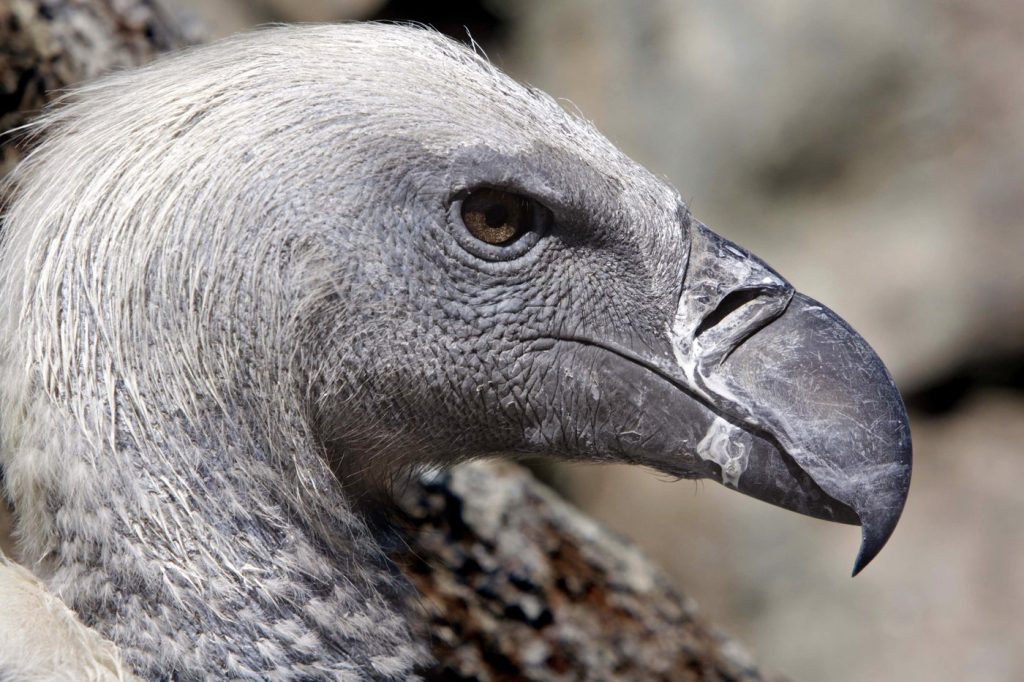CAPE TOWN, South Africa (AP) – Vultures have long faced a negative reputation, often perceived as ugly creatures associated with death. However, conservationists in Africa are launching initiatives aimed at changing this narrative. Their goal is to highlight the ecological value of vultures, a critical player in maintaining healthy ecosystems.
A report by BirdLife International estimated that vultures contribute approximately $1.8 billion annually to Southern Africa's ecosystems. This value reflects the essential roles they play in clean-up, pest control, and anti-poaching efforts, functioning as vital scavengers that help sustain ecological balance.
Fadzai Matsvimbo, an extinction prevention coordinator at BirdLife International, noted that despite their unappealing appearance and lack of popularity, vultures are invaluable. They perform significant ecological functions, particularly important at a time when six of the eleven vulture species in Africa are deemed endangered or critically endangered by the International Union for Conservation of Nature. Some vulture populations have plummeted by nearly 90%, as reported by Matsvimbo.
The report underscores the need for increased public and governmental awareness regarding the positive contributions of vultures. It highlights research conducted in Botswana, Zambia, and Zimbabwe, demonstrating that a group of vultures, known as a wake, can cleanse a decomposing carcass in a matter of hours. This process curtails the spread of diseases and minimizes the risks presented by pests such as rats and feral dogs, thus benefiting local communities.
Vultures possess strong stomach acid that allows them to consume harmful substances without succumbing to food poisoning. They can ingest pathogens like anthrax and botulism, mitigating threats to other wildlife and human populations. For instance, over 50 hippos were reported dead from suspected anthrax poisoning in a Congo reserve recently, highlighting the critical role vultures serve in preventing such outbreaks.
Matsvimbo emphasized that vultures act as nature's best sanitation service, akin to the health crisis seen in India due to the decline of vultures. A study published last year indicated that the absence of vultures contributed to the deaths of half a million people in India, resulting from increased rates of bacterial infections and diseases.
Moreover, vultures are utilized as "sentinels" by game rangers, as they are typically the first to locate dead animals, which can help track poachers. Farmers also rely on vultures to find deceased or injured livestock, underlining their utility beyond ecosystem management.
Vultures uniquely feed exclusively on carrion, making them vulnerable to intentional poisoning by humans, especially poachers. They are also commonly killed or injured in collisions with power lines. Additionally, their remarkable eyesight and instinct for locating dead animals have led to them being viewed as clairvoyants by some local cultures, where their body parts are misused in traditional potions and charms.
Kerri Wolter, CEO of the Vulpro vulture rehabilitation center in South Africa, emphasized the importance of changing public perceptions about vultures. She aims to foster a sense of admiration for these birds rather than fear or revulsion.
Both Matsvimbo and Wolter criticized portrayals of vultures in Hollywood that demonize them, similar to the negative image sharks received post-"Jaws." Matsvimbo expressed her disappointment over these misrepresentations, stating that vultures are consistently shown in a negative light, and called for a shift in the cinematic portrayal of these essential creatures.










